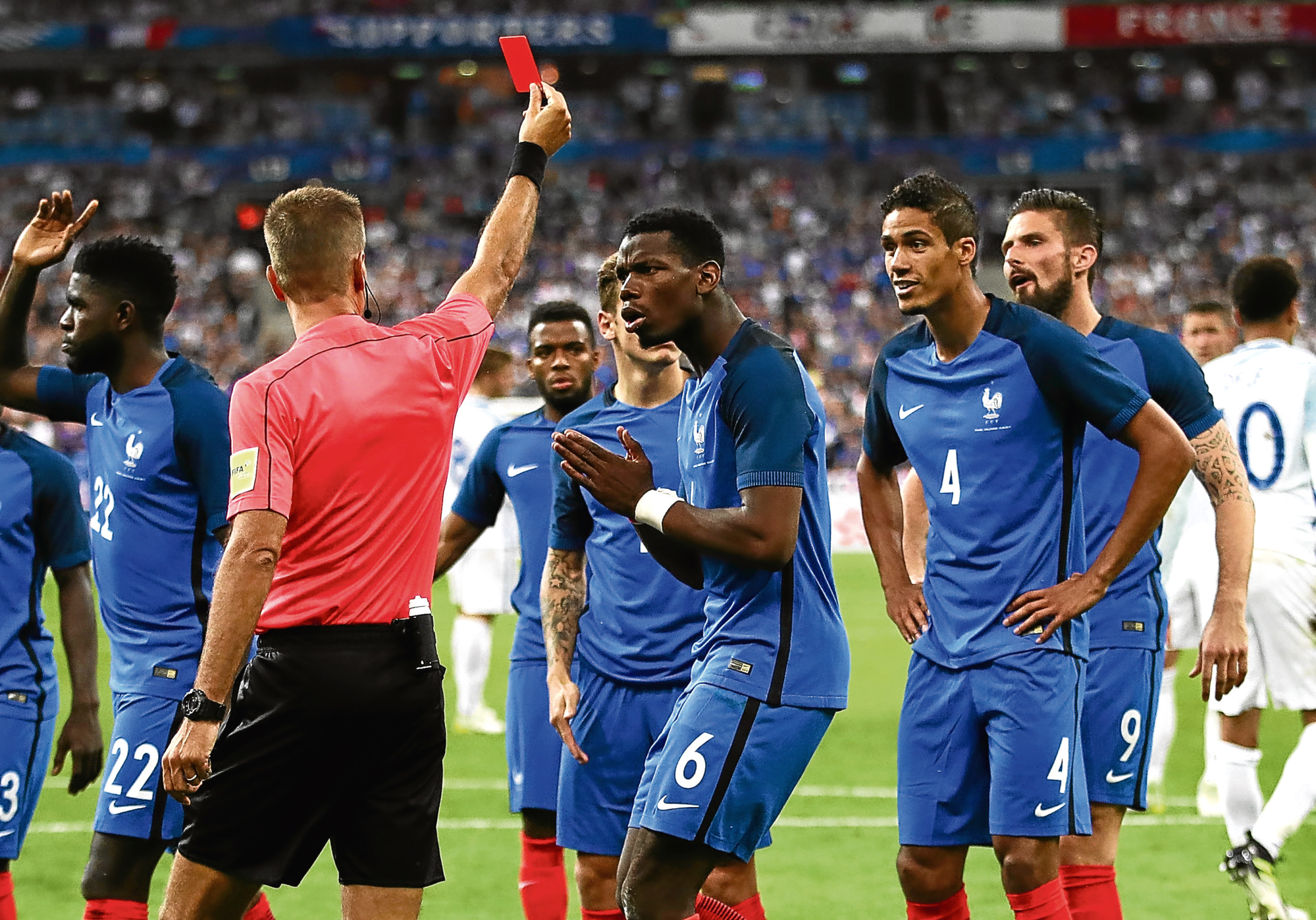
I HAD always been in favour of using video replays to help referees.
Now, I’m not convinced.
I thought Italian whistler Davide Massa made the right call by sending off France’s Raphael Varane after consulting the video ref against England in midweek.
As a striker, I was always taught to get across the front of your defender.
That’s what England star Dele Alli did in Paris – and he was clipped.
It was a penalty, no doubt. Correct decision.
Whether or not it was also a red card was a tougher call. But the ref had the option of asking for help.
Sure enough, he got his video assistant to have a look at the replay, then got it spot on again by giving Varane his marching orders – and it only took 30-odd seconds.
That was all the proof I needed that the system worked.
But then I spoke to a good pal of mine, former referee Keith Hackett.
Keith was adamant the wrong decision had been reached.
Let’s not kid ourselves here, Hackett was a top ref, and he is still involved in the game.
He reckons Varane should only have been booked because he attempted to pull out of making contact with Dele Alli.
He tells me that the rules state that a red card should only be shown under the circumstances of Varane’s if the foul is adjudged to have been deliberate.
According to Keith, Varane’s attempt to avoid contact should have saved him, but the video assistant fudged the call.
Clear as mud.
What it all suggests to me is that video replays aren’t going to be definitive after all.
Just like live decisions, they are wide open to interpretation – and decisions taken after viewing will STILL cause arguments.
So what on earth is the point?
Don’t get me wrong, I’m still right behind referees. They need additional help.
But I think we need to go back to the drawing board when it comes to deciding how best to offer it.
We’ve made a big leap forward with goal-line technology. Nobody can have any complaints with that.
We’ve seen it prove its worth at the World Cup, the European Championships, the Premier League and the Champions League, as well as the German and French top-flights.
We have also seen the arrival of additional assistant referees placed on the goal-line in each penalty area, though they seem about as useful as a chocolate teapot.
The next logical step is video refereeing, as utilised most notably in rugby.
But on the evidence from Paris, its worth to football already looks questionable.
For a start, the review of the footage and discussion between the referee and the official in the video booth wasn’t made public.
The result is a delay that leaves players and spectators in the dark.
If, after that, replays shown to the public suggest the officials have got it wrong, there is going to be uproar.
Then what? Are we going to see players appealing red cards issued by video referees? Madness.
Everybody wants to see referees arrive at correct decisions.
But if they are still arriving at the wrong ones after being given more help than ever, perhaps we’re just as well going back to the way we were.

Enjoy the convenience of having The Sunday Post delivered as a digital ePaper straight to your smartphone, tablet or computer.
Subscribe for only £5.49 a month and enjoy all the benefits of the printed paper as a digital replica.
Subscribe